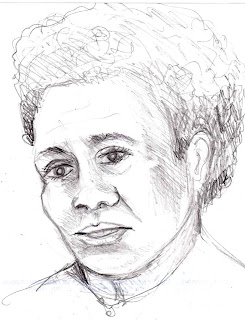 from w
from wAt what age should civil servants in Fiji retire? Sixty was the norm, then fifty-five, then a protest and back to sixty, and now another protest and to fifty-five. Many men and women are in their prime of experience and responsibility in their late fifties so I reckon retirement age ought to be optional. Think of teachers, doctors, nurses, CEOs. That means if you were born in April 1954 you will have to retire in April 2009. Is that correct?
from Fijilive:
Appeals Court orders retirement age at 55 11/03/2009
-------------------------------------------------------
Fiji’s Court of Appeal in Suva has quashed an earlier decision by the High Court and ruled in favour of the State to lower the retirement age of public servants from 60 to 55.
The Fijian Teachers Association (FTA) and the Fiji Public Service Association (FPSA) had won this case against the State in March 2007 for public servants to retire at 60.
The case was then heard before Justice Filimoni Jitoko.
The State, represented by the Public Service Commission (PSC) and the Attorney General’s Chambers appealed this decision.
It argued that the PSC had the Constitutional right to make regulations for the reduction in retirement age of public servants and that it had met the requirement of fairness and legitimate expectations by conducting proper consultations with the representatives of the public servants.
It further stated that the compulsory reduction of the retirement age from 60 to 55 years was not discriminatory and therefore, did not breach the provisions of section 38(2) of the Constitution.
Today, the three Court of Appeal judges – Justice John Byrnes, Justice Andrew Bruce and Justice Izaz Khan allowed the appeal and quashed Justice Jitoko’s earlier decision.
In his decision, Justice Bruce said: “The rejection of the PSC’s argument by the trial judge (Jitoko) was without foundation because he had no evidence upon which he could decide the extent to which the public servants would have served 30 years”.
“Secondly, there was no evidence to determine the extent to which the public servants would have accumulated enough FNPF funds at 55 to retire and start their own businesses”.
The three judges said Justice Jitoko did not give sufficient weight to the evidence of PSC Permanent Secretary Taina Tagicakibau and Fiji Teacher’s Union General Secretary Agni Deo Singh in relation to the advantages which would be gained by the reduction in the retirement age from 60 to 55.
Tagicakibau in her affidavit of September 26, 2007 said the Government would save $79,519,530 when the reduction in retirement age policy came into effect from January 1 this year. She added: “If posts were filled selectively according to areas of need, the government would save up to $10,455,610 when this policy is put into effect”.
In his affidavit of September 21, 2007, Singh said by the age of 55 years, civil servants would have worked for at least 30 years and would have met all obligations in relation to their children's education.
He said: “There are over 2000 graduates who are unemployed. 800 of these are qualified teachers. A large number of these 800 qualified teachers would have been trained by government at Advance College of Education and Lautoka Teachers College or at the USP on a scholarship”.
“A large number of these unemployed graduates are sons and daughters of poor people who would have taken loans for education of their children Government employment becomes the last and sometimes the only venue for employment because of the limited opportunity for employment in the private sector.”
The three judges said Tagicakibau and Singh were not cross-examined on their affidavits and in their view, the duo’s evidence should have been accepted by Justice Jitoko.
“If he had done so, it would not have been possible for him to conclude as he did.”
The Court also ordered that the two unions, FTA and FPSA, to pay court costs of $3,500.
Fijilive

3 comments:
Ms tagicakibau hereself is past retirement age by PSC books.
Bula sia,
Oh yes there will be a lot of hoo-ha about this one and excuses will be made about some people being indispensable! Is Taina indispensable?
The President is how old - eighty six perhaps?
The Fiji Times ran a piece today agreeing with the concept of early retirement for civil servants noting that some lazy people are sitting pretty and young people can't get jobs, so there's a case for that view as well and some juggling to do. In Australia when I noticed many quite older women in unskilled jobs and their daughters were unemployed I thought that something was wrong there and I reckoned that we should train up the young people and oldies let go a bit. But when older workers are still very fit mentally and physically, well....
w.
The "oldies" is quite repulsive to me . It doe canote a bold discrimination of age.
A better solution to mandatory retirement to protect the livelihoods of our moms, dads, aunties etc is the RULE 85. Which is a person regardless of age should be afforded at lest 30 years of responsible work and minimum age to reire will be 55.
30 years is fair for one to accumulate a decent pension and yet age does not force or discriminate one from their accum pension. Living with lack of means is second level consequence that Govt. and union must dsicuss. It will burden the tax payers who might be younger in age.
What ever and whoever calls people my age " oldies" needs to stop and think of the very discriminatory term.
Younger generations will appreciate this thought process when they become of that Oldie's age and have not accummulate enough for a decent pension too.
On the same breath, some supervisor out there is sitting pretty and should be warranted to evaluate workers properly so NO one is warming chairs only, young or old.
I hope you get my last statement here...Thanks
Post a Comment